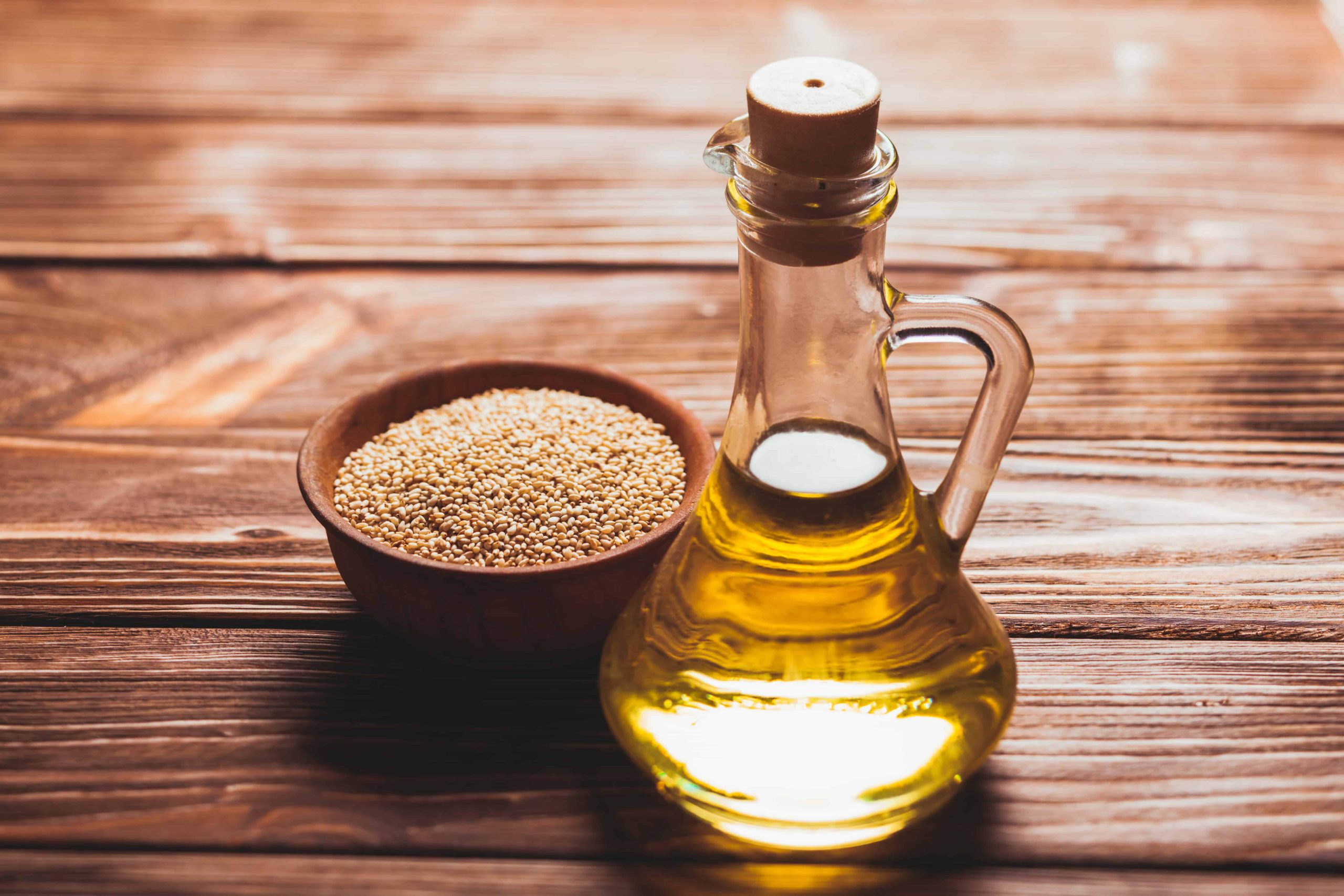Sesame Oil: Its Nutritional Value and Versatile Uses
Sesame Oil

In the vast tapestry of culinary treasures, few oils boast the rich history, distinct flavor, and nutritional prowess of sesame oil. Derived from sesame seeds, this golden elixir has been a staple in traditional cuisines for centuries. Beyond its culinary applications, it is revered for its nutritional benefits and versatility. Join us as we delve into the nutritional value of sesame oil, exploring its unique composition and discovering the myriad ways it can elevate both the flavor and health profile of your meals.
The Nutritional Composition of Sesame Oil:
1. Healthy Fats:
It is predominantly composed of healthy fats, including polyunsaturated and monounsaturated fats. These fats are essential for heart health and overall well-being.
2. Antioxidants:
Rich in antioxidants like sesamol and sesaminol, it helps combat oxidative stress, protecting cells from damage and supporting the body’s defense mechanisms.
3. Vitamins and Minerals:
Sesame oil contains essential vitamins such as vitamin E, which contributes to skin health and acts as an antioxidant. It also provides minerals like copper, zinc, and magnesium.
4. Phytochemicals:
It contains unique phytochemicals, such as lignans, which have potential health benefits, including antioxidant and anti-inflammatory properties.
Health Benefits:
1. Heart Health:
The presence of monounsaturated and polyunsaturated fats in sesame oil contributes to heart health by reducing bad cholesterol levels and supporting overall cardiovascular function.
2. Antioxidant Protection:
It’s antioxidants help neutralize free radicals, protecting cells from oxidative damage. This can contribute to a lower risk of chronic diseases.
3. Anti-Inflammatory Properties:
Certain compounds in sesame oil exhibit anti-inflammatory effects, making it a potential ally in managing inflammatory conditions such as arthritis.
4. Skin Health:
Vitamin E in sesame oil supports skin health by promoting elasticity and protecting against damage from UV rays. The oil can be applied topically for moisturizing benefits.
5. Bone Health:
It contains minerals like copper and zinc, which play a role in bone health.
7. Digestive Support:
Its anti-inflammatory properties may help alleviate conditions such as indigestion.
Culinary Uses of Oil:
1. Stir-Frying and Sauteing:
It’s distinctive nutty flavor makes it an excellent choice for stir-frying and sautéing. It imparts a rich taste to vegetables, meats, and noodles.
2. Marinades and Dressings:
Create flavorful marinades for meats or dressings for salads by incorporating sesame oil. Its robust taste adds depth to your culinary creations.
3. Dipping Sauces:
Mix oil with soy sauce, garlic, and ginger to create a delectable dipping sauce for dumplings, spring rolls, or sushi.
4. Asian Cuisine Enhancer:
It is a key ingredient in many Asian dishes, adding a distinct flavor to dishes like fried rice, noodle stir-fries, and various sauces.
5. Flavor Boost for Soups:
A few drops can elevate the flavor of soups, giving them a rich and savory depth. It works particularly well in noodle soups and broth-based dishes.
Types of Sesame Oil:
Understanding the different types of sesame oil is crucial for choosing the right one for your culinary needs:
1. Light Oil:
Lightoil is refined and has a mild flavor. It is suitable for high-heat cooking and is often used in stir-fries and sautés.
2. Dark Oil:
Dark sesame oil is unrefined and has a stronger, more robust flavor. It is commonly used as a condiment or finishing oil to add a distinctive taste to dishes.
3. Toasted Oil:
Toasted sesame oil is made from toasted sesame seeds, imparting a deep, nutty flavor. It is often used as a finishing oil in Asian cuisine.
Incorporating into Your Diet:
1. Salad Dressings:
Drizzle sesame oil over salads along with soy sauce, ginger, and garlic for a delicious Asian-inspired dressing.
2. Stir-Fries and Sautes:
Use sesame oil as the cooking oil for stir-frying vegetables, meats, or tofu.
3. Dipping Sauces:
Combine sesame oil with soy sauce, rice vinegar, and a touch of honey for a versatile dipping sauce that pairs well with a variety of dishes.
4. Marinades:
Create flavorful marinades for meats or vegetables by incorporating with ingredients like soy sauce, garlic, and citrus.
5. Noodle and Rice Dishes:
Add a drizzle of oil to noodle dishes, fried rice, or grain bowls to enhance the overall flavor profile.
Choosing Quality:
To ensure you are getting a high-quality oil, consider the following factors:
- Cold-Pressed and Unrefined: Opt for cold-pressed, unrefined sesame oil to retain the natural flavors and nutritional benefits.
- Packaging: Choose oil packaged in dark glass bottles to protect it from light, which can cause it to degrade.
- Reputable Brands: Select oil from reputable brands with transparent sourcing practices and positive customer reviews.
Cautions and Considerations:
While sesame oil is generally safe for most individuals, there are considerations to keep in mind:
- Allergies: Individuals with sesame allergies should avoid sesame oil.
- Moderation: It is calorie-dense, so use it in moderation to avoid excessive calorie intake.
Conclusion:
Sesame oil, with its rich history, nutritional benefits, and versatile uses, stands as a culinary and wellness gem. From enhancing the flavor of your favorite dishes to contributing to heart health and skin radiance, It has earned its place as a beloved ingredient in kitchens around the world. As you embark on a journey to explore the wonders of this golden elixir, savor its distinctive taste and embrace the holistic benefits it brings to your culinary creations and well-being. Let sesame oil be more than an ingredient—let it be a flavorful and nourishing companion on your culinary and wellness adventures.








